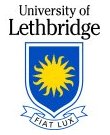Section 1 Introduction to Math 2565
Welcome to Math 2565, Accelerated Calculus II. We pick up more or less where Accelerated Calculus I leaves off, with integration. In a lot of ways, the material on integration is outdated: why spend weeks learning to solve integration problems that a computer can do in seconds? The best answer (aside from the fact that someone has to be able to program the computer) seems to be, “Because we like solving l'il puzzles.” 1
There are many of us in this class, coming from many different backgrounds and situations. If the “default settings” for the class don't work for you, please don't hesitate to ask for accommodation. Not everyone has reliable high speed internet, or a computer they can bring to class. Not everyone is able to attend scheduled classes without work/family/life getting in the way. But everyone deserves a fulfilling, enjoyable learning experience in each class.
I am committed to making our Math 2565 classroom. I expect all of you to make the same effort. Everyone is welcome. We are learning this material together, as a class. You should see yourselves as colleagues, not competition.
We begin with some introductions: to the university, to the staff, and to the course.
Subsection 1.1 Welcome to the University of Lethbridge
Oki, and welcome to the University of Lethbridge. Our University's Blackfoot name is Iniskim, meaning Sacred Buffalo Stone. The University of Lethbridge acknowledges and deeply appreciates the Siksikaitsitapii peoples' connection to their traditional territory. We, as people living and benefiting from Blackfoot Confederacy traditional territory, honour the traditions of people who have cared for this land since time immemorial. We recognize the diverse population of Aboriginal peoples who attend the University of Lethbridge and the contributions these Aboriginal peoples have made in shaping and strengthening the University community in the past, present, and in the future.
As usual, everything you need to know for the course will flow through our Moodle 2 learning management system. Make sure you check in regularly to keep on top of what's happening in the course.
Don't hesitate to reach out if you have questions. I'll do my best to answer all of your course-related questions as quickly as possible. (See Section 4.1 for details on how to get in touch.) If you have questions that are not related to the course, you can ask those too, and I'll try to answer, or to direct you to someone who can. Some resources can be found on the University's Health and Safety website 3 .
Subsection 1.2 Course staff and contact information
My name is Sean Fitzpatrick 4 . I can be reached via email at sean.fitzpatrick@uleth.ca 5 . I'm doing both the “lectures” and the tutorials.
Student (office) hours: you will be able to book appointments, alone or in groups, using a Calendly provided on Moodle. Please feel free to make frequent use of these hours. They're intended as an opportunity for you to get help, or for whatever else you want to discuss.
Subsection 1.3 Course description
Math 2565 is a second semester in single variable calculus. We cover techniques and applications of integration, differential equations, sequences and series, and parametric curves. There's also a short introduction to functions of several variables at the end.
Compared to Math 1565, this course moves fast. Of the three courses in the Accelerated stream, Math 2565 has by far the most content. This means that we will not always cover every single detail in class; I expect you to read the book, or watch the videos it includes.
Spring 2023 is expected to remain fully “in-person”, but it is worth noting that local COVID transmission in Lethbridge is just as high as it was a year ago, so I will try to accommodate remote participation.
In comparison to a “traditional” in person class, you should expect
- More emphasis on:
- Conceptual understanding
- Discussion
- Context (the whole “what is this good for?” routine)
- Being generally swell human beings
- Less emphasis on:
- Memorization (because how am I gonna stop you from looking stuff up, anyway?)
- Routine computational proficiency (let's be honest: the computer can do this better than us most of the time)
- Tests and exams (so I can spend more time teaching and less time as the Math Police)
twitter.com/sbagley/status/1478224506409742339?s=20moodle.uleth.cawww.uleth.ca/services-for-students/health-safetywww.cs.uleth.ca/~fitzpatmailto:sean.fitzpatrick@uleth.ca

